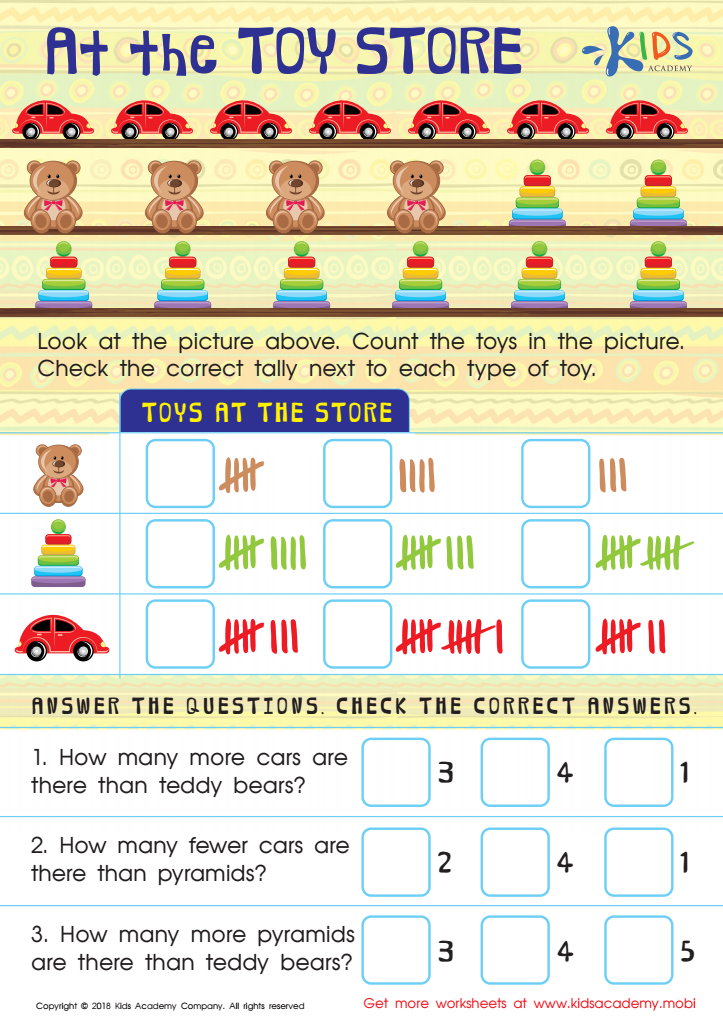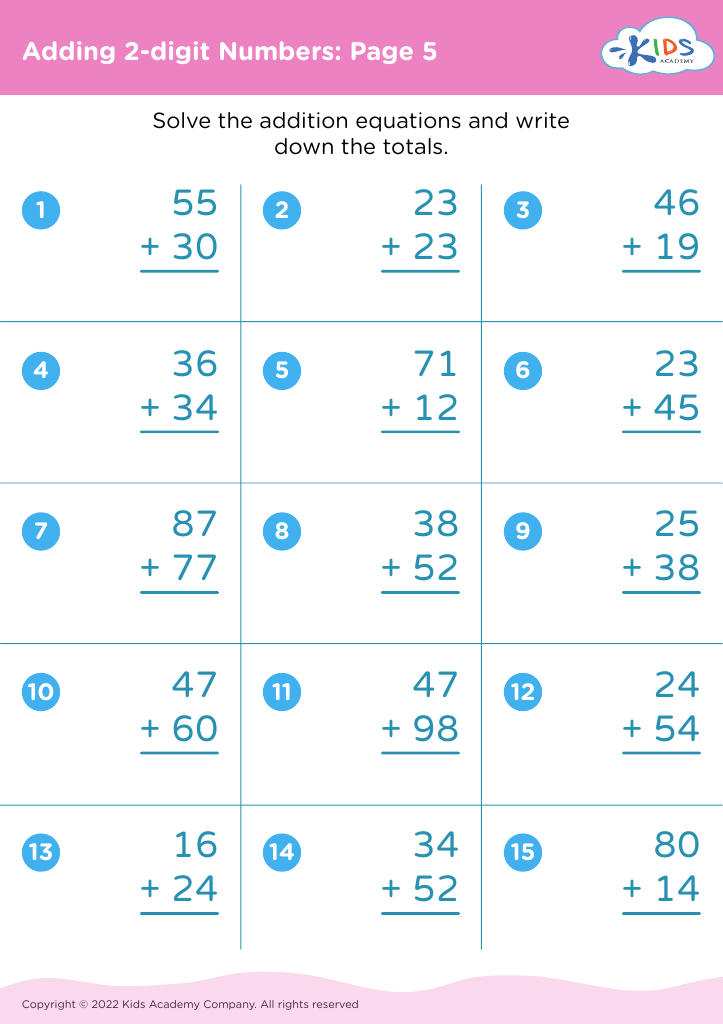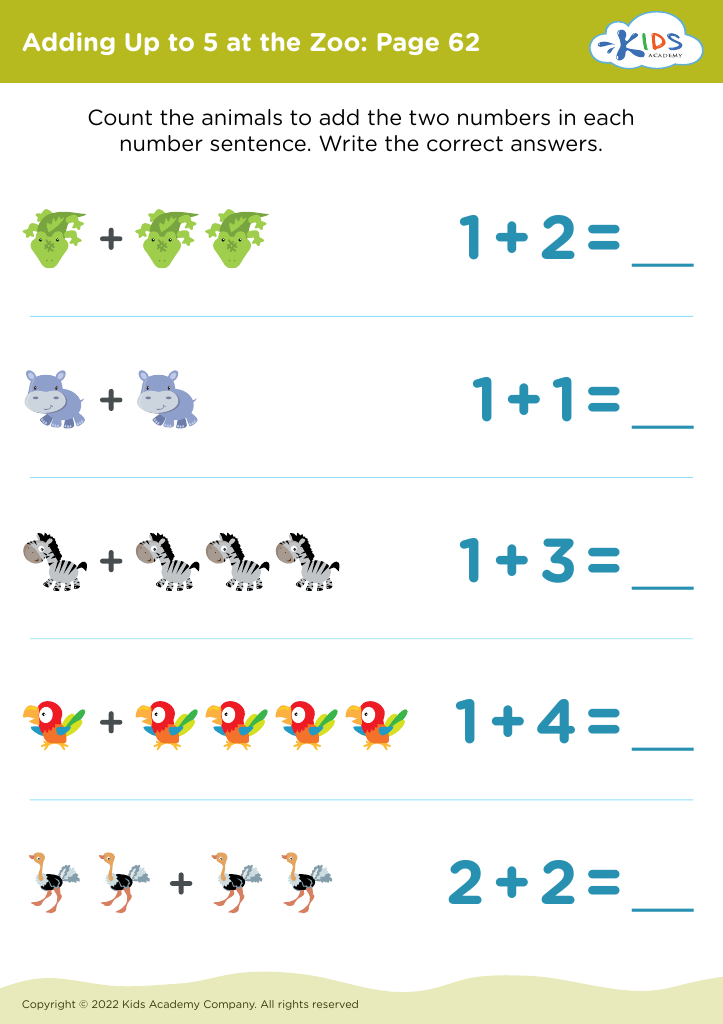Cognitive skill development Math Worksheets for Ages 3-8
3 filtered results
-
From - To
Enhance your child's cognitive skills with our engaging Math Worksheets designed for ages 3-8. These worksheets promote critical thinking, problem-solving, and logical reasoning through interactive activities tailored to young learners. Each worksheet focuses on essential math concepts, ensuring that children grasp fundamental skills in a fun and motivating way. From counting and pattern recognition to basic addition and subtraction, our materials are perfect for both home learning and classroom settings. Help your child build a solid foundation in mathematics while fostering their cognitive development. Explore our diverse range of worksheets and watch your child's confidence in math grow!


Tally Chart: At the Toy Store Worksheet
Cognitive skill development in math for children ages 3-8 is crucial as it lays the foundation for lifelong learning and problem-solving abilities. During these formative years, children’s brains are highly adaptable, making early math exposure vital for their cognitive growth. Engaging challenges designed around numbers, patterns, and spatial reasoning not only boost mathematical understanding but also enhance critical thinking and decision-making skills.
Parents and teachers play a pivotal role in fostering math skills, as early experiences can influence a child's attitude towards math for years to come. Positive interactions with math through games, storytelling, and practical activities can demystify the subject and make it enjoyable, promoting a growth mindset. When children develop strong cognitive math skills early on, they are more likely to experience success in later academic pursuits, reducing math anxiety and building confidence.
Moreover, establishing robust cognitive skills encourages collaboration and communication among peers, which are essential for social development. Parents and teachers should actively involve children in playful math-related activities to inspire curiosity and exploration. Ultimately, enhancing cognitive math skills during these early years not only benefits children academically but also equips them with the tools necessary for everyday problem-solving in a rapidly evolving world.


 Assign to My Students
Assign to My Students

















